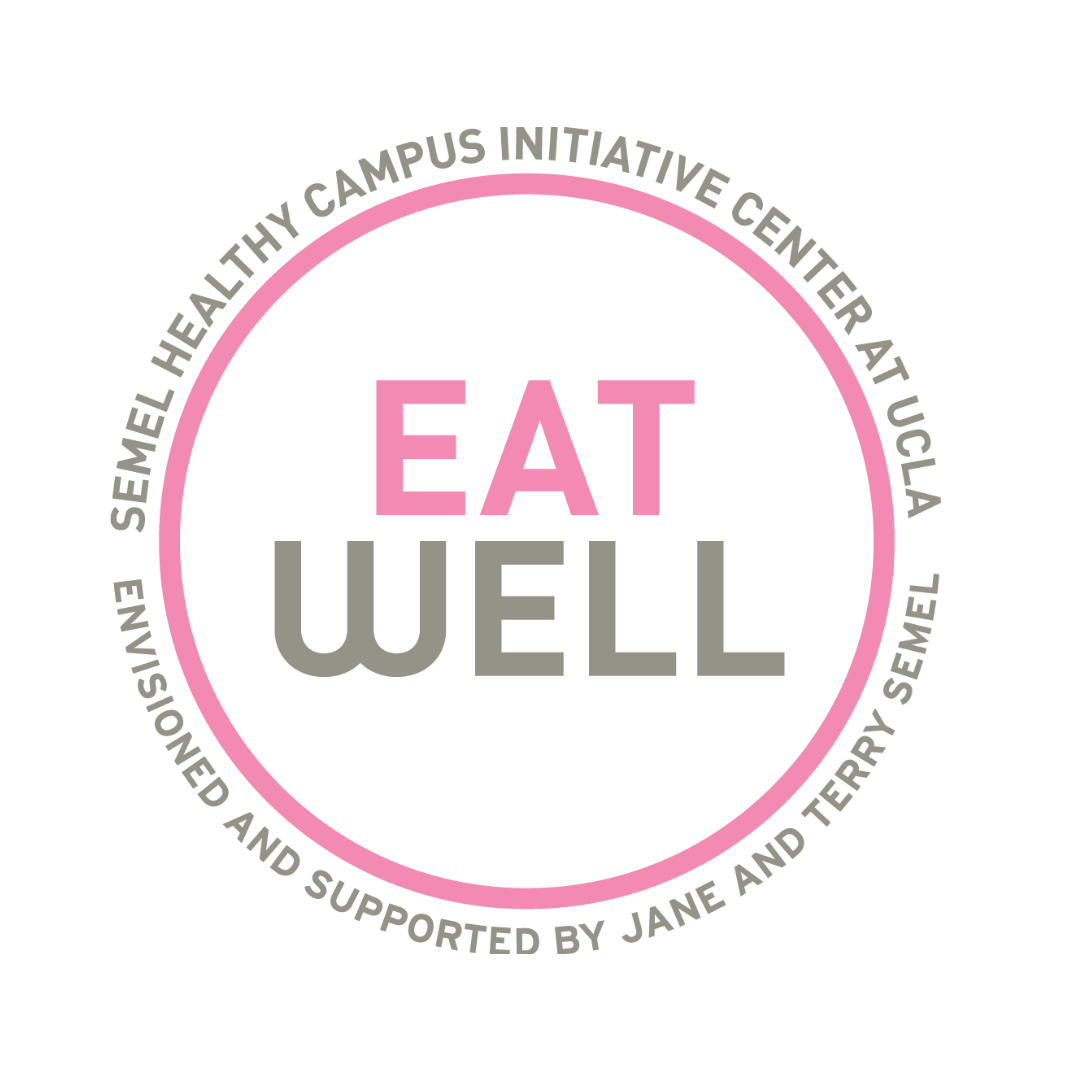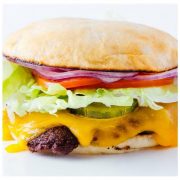Roy Choi Serves Up LocoL at UCLA – and Tells Us How to Eat Well on a Student Budget
By: Hannah Malan, PhD Student, Community Health Sciences, UCLA; Graduate Student Researcher, UCLA Healthy Campus Initiative EatWell Pod
Chef Roy Choi describes his delicious and trailblazing Kogi tacos as “LA on a plate.” Growing up as a Korean American “immigrant kid” in Los Angeles, Roy says he embraced his mother’s relentless “gangster” spirit, ultimately establishing himself as a leader not only in the kitchen, but also in the community.
His wild success with Kogi earned him recognition as a founder of the food truck movement that quickly spread across the country. Now, he is redefining the role of chefs in connecting with and feeding their communities. His latest endeavor, a Watts-based burger joint called LocoL, was just named the Los Angeles Times Restaurant of the Year. In explaining his selection, renowned food critic Jonathan Gold said, in a nutshell, “It should feel like LA.” In other words, it should be provocative, purpose-driven, and reflective of people that bring it to life.
LocoL does just that – and more. It calls for a fast food revolution and states this in its mission: “We fundamentally believe that wholesomeness, deliciousness and affordability don’t have to be mutually exclusive concepts in fast food. We believe that fast food restaurants can truly empower the communities they currently underserve.”
When it came time to choose the eats to serve up at our UCLA Healthy Campus Initiative Celebration, we couldn’t think of a better chef to contribute to our #DreamRevolution themed event. With a few days to go before the celebration, I asked Roy to share his dreams and insights about food justice and eating well.
His answers? Quick, juicy, and impressive – just how I imagine his food will be at our event on May 4th. Enjoy the words of wisdom, and join us at the celebration for live performances and, yes…FREE food by the team at LocoL. As a bonus, check out the recipe below (inspired by Roy’s advice) to make at home.
HM: What does food justice mean to you, and how does it inform your work?
RC: I’m not political. Justice to me is action and love. My role is to heal and build, not debate and destroy. I am a healer.
HM: A recent University of California (UC) study found that 42% of UC students have experienced food insecurity, defined as the uncertain or limited ability to get adequate food due to lack of financial resources. I was recently involved in facilitating focus group discussions with UCLA students and heard that students often find it challenging to get and prepare food that is healthy, delicious, and affordable. How might students elevate inexpensive ingredients to improve their diets and enjoy their food?
RC: I always say rice. If you have rice then you can build. Rice allows you to explore vegetables and flavor like nothing else. Start with rice and eat it with the things you hate, watch, you’ll hate them less. Now imagine that with things you love. It works all ways.
HM: Time is also a barrier for students who are often working in addition to taking rigorous course loads at UCLA. Any advice around making time to eat and/or prepare wholesome food?
RC: Eat small meals throughout the day. Snack on nuts and fruits not candy. Drink lots of water. Eat lots of fatty foods and spicy foods.
HM: What’s your message for students interested in improving not only their own health and wellbeing, but also working on food justice and health promotion in their communities?
RC: Food is life in almost every culture except the United States. Think about that.
HM: Given the theme of our Healthy Campus Initiative Celebration is Dream Revolution, what’s your dream for the food movement?
RC: I’m living it. LocoL is a dream that came to life. But dreams aren’t clouds with buffets of hot fudge. It has twists and turns. A dream turns into a nightmare daily then back to a dream.
HM: Your team will be serving some LocoL menu items at the celebration. Lucky us! Can you give us a little taste of what to expect?
RC: Foldies. Burgers. Rice bowls. Aguas frescas. Yum.
Come experience LocoL and the #DreamRevolution spirit at our UCLA Healthy Campus Initiative Celebration from 4-7pm on Thursday, May 4th. The event is open to the community. Tickets are FREE at UCLA’s Central Ticket Office or $25 online.
If you can’t make it to UCLA on May 4th, visit LocoL in Watts and follow the revolution on social: @welocol @healthyUCLA #DreamRevolution
Dream on!
|
Budget Bytes Vegetable Not Fried Rice INGREDIENTS
Total cost: $3.33 ($0.83 per serving) Get the full recipe here. 1EatWell Tip: Spices and herbs are smart options for adding flavor without extra salt – some may have added health benefits, too. 2EatWell Tip: Fats are a major source of energy and play an important role in a healthful diet. Eggs, avocados, nuts, and oils are great sources of healthy fats. 3 EatWell Tip: By switching from white to brown rice, you’ll get more fiber, antioxidants, vitamins, and minerals. As a whole grain food, brown rice can help with weight control and reduce the risk of heart disease and type 2 diabetes. You can also make a big batch of brown rice and simply freeze what you don’t use. Here’s the how-to guide from Budget Bytes. |



